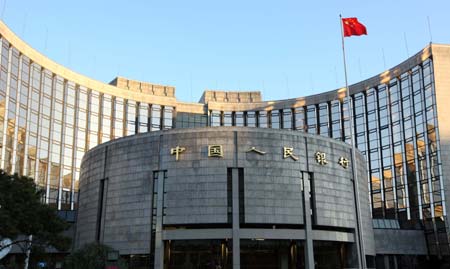PBOC, WB sign deal for Chinese bonds
 0 Comment(s)
0 Comment(s) Print
Print E-mail Xinhua, April 23, 2012
E-mail Xinhua, April 23, 2012
|
|
|
Photo shows the People's Bank of China (PBOC) in Beijing, capital of China. [File photo] |
The People's Bank of China (PBOC), the country's central bank, said on Monday it has signed agreements with the World Bank Group to invest in China's inter-bank bond market on behalf of two United Nations agencies.
In a brief statement posted on its website, the PBOC said the agreements were signed in Washington D.C. between China's central bank and the International Bank for Reconstruction and Development, as well as the International Development Association.
Details of the agreements are not immediately available on the PBOC's website.
PBOC Governor Zhou Xiaochuan and WB President Robert Zoellick attended the signing ceremony, according to the statement.
The WB's interest in Chinese bonds has increased during the past two years, as China steps up its efforts to promote the internationalization of its currency, giving the UN agency more options to diversify its asset holdings.
The group issued 500 million yuan (about 79.36 million U.S. dollars) in yuan-denominated fixed-rate two-year bonds in Hong Kong last year.
While attending the ministerial meeting of the International Monetary and Financial Committee held in Washing D.C., Zhou, the PBOC governor, said Saturday that China will continue to strengthen its macroeconomic controls and accelerate structural reforms in order to maintain its economic resilience and sustainable growth.
Zhou said the International Monetary Fund should change the way it supervises international finances and make it more effective and fair.
China looks forward to the IMF's supervision over systemic risks and its member countries' macroeconomic policies, he said.







Go to Forum >>0 Comment(s)